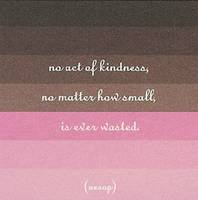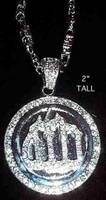By Professor Ali A. Mazrui (Director, Institute of Global Cultural Studies) and Albert Schweitzer (Professor in the Humanities State University of New York at Binghamton, New York, USA)
There are two ways of trying to understand what Islam is all about. One way amounts to interpreting Islam theologically (what do the rules say?). The other method of research is an effort to interpret Islam historically (what have the Muslims done in history?). Theological Islam is a matter of doctrine. Historical Islam is a matter of experience.
Theological Islam is profoundly distrustful of secularism, viewing it as a space where God's laws are not supposed to apply. Such a concept is doctrinally alien. Historical Islam, on the other hand, has interpreted secularism not as a space where God's laws do not apply, but as a space where God's laws are permissive in varying degrees.
Halal - [something is permitted]Makruh - [something is disapproved of but not forbidden]Sunna - [something is recommended but not commanded]Haram - [something is truly forbidden]Fardh or Wajib - [something is obligatory]
Secularism is not a domain of God in absentia, but the domain of God's indulgent permissiveness - the divine green light.
Historical Islam has distinguished between separating church (or mosque) from the state, on one side, and separating religion from politics (on the other side). Separating church from state is do-able - this is an institutional differentiation. Separating religion from politics is NOT do-able - this is behavioral separation in the actions of individuals.
The Republic of India is a secular state - separating church from state. But political behavior in India is constantly affected, reinforced or disrupted by religious factors. India has separated the temple from the state, but has not really sought to separate religion from politics in the hearts of the masses.
England, on the other hand, has not separated church from state. The Queen is both Head of State and Governor of the Church of England. The Archbishop of Canterbury is chosen with the participation of the Prime Minister. And major doctrinal changes in the Church of England need at least the tacit approval of the British Parliament. I am, of course, subject to correction by Lord Carey, the former Archbishop of Canterbury [in attendance here].
But although the British have not separated church from state (antidisestablishmentarianism), they have remarkably succeeded in separating religion from politics in the domain of individual behavior.
During the life of the Prophet Muhammad and of the first four caliphs (Abubakar, Omar, Uthman and Ali) there was in Islam neither separation of church from state institutionally nor separation of religion from politics behaviorally.
The political secularization of Islam historically began with the royalization of Islam - the establishment of kings and sultans from the dynasties of the Umayyads and Abbasides onwards. The Umayyads reigned from 661 to 750 Christian era; and the Abbasides from 750 to 1268 C.E.
It became clearer across the centuries that there was a Caliph presiding over the Muslim ummah, on one side, and a Sultan presiding over affairs of the state, on the other.
In the Christian Bible the command is "Give unto Caesar what is Caesar's; and unto God what is God's." In historical Islam the injunction became "Give unto the Caliph what is the Caliph's and unto the Sultan what is the Sultan's."
The royalization of Islam was de facto a process of partial political secularization - separating the Caliphate from the Sultanate. Mustafa Kemal Ataturk put an end to the Caliphate on March 3, 1924.
Religious values in the society as a whole remained very strong. What made Islam at the time compatible with the spirit of modernity was Islam's own spirit of creative synthesis. Islam was prepared to learn philosophy from the Greeks, architecture from the Persians, mathematics from the Indians, jurisprudence from the Romans - and to synthesize what was borrowed with Islam's own core values. That was a modern spirit.
The Muslim world went modernist long before the West did - but then the Muslim world relapsed back into pre-modernization. The ancient modernist phase of Islam has left its mark on the subsequent modernization of the West. The marks of Islamic modernism on the English language today include words borrowed from Arabic - like algebra, zero, tariff, and admiral. To recepitulate, Islam was born pre-modern, but receptive to modernism. Then it went modernist in the heyday of its civilization. Then Islam relapsed into pre-modernism, where it has been stuck to the present day.
Islam will return to the spirit of modernism when it returns to the spirit of creative synthesis - learning from others, letting others learn from Islam, and maintaining Islam's own core of authenticity.
Islam and Civil Society
When we now turn to civil society, once again Islam should be interpreted either theologically (identifying its laws and rituals) or interpreted historically (identifying how Muslims have lived Islam across the ages).
Of course the theology and the history repeatedly intersect. For example, Islam is pro-profit but anti-interest. This dual-doctrine had consequences for civil society. Doctrinal opposition to interest led to the shrinking of a money-lending class in the history of Islam. The potential rudiments of a banking system were thus aborted at birth.
On the other hand, the Islamic green light for profit-making influenced the suuq or market-place culture in the political economy of Islam. The Caravan linking one civil society with another encouraged trade across the Sahara Desert and stimulated the dhow trade across the Red Sea to Africa and across the Indian Ocean to east and south-east Asia. Trans-cultural trade helped to propagate Islam across huge cultural distances.
Islam's paradox of pro-profit and anti-interest also resulted in the complex culture of awqaf - a variety of charitable bequests whose civil society beneficiaries ranged from schools and clinics to defacto chambers of commerce, from social clubs for young people to grave yards for the poor.
The mosque itself is, in some Muslim countries, a major institution of civil society. In major cities like Teheran and Cairo the mosque sometimes tries to care for the homeless, either with free food or with shelter during rainy or cold seasons.
In sacred months, like the fasting month of Ramadhan or the pilgrimage month and ashura month of Muharram, the mosque can become a pre-eminent refuge for the poor and the homeless.
Some of the awqaf in Egypt are for the education of girls and women to prepare them for clear roles in civil society. Theological Islam has seemed to discourage women from performing high governing roles over men. However, historical Islam - starting from the great political influence of the Prophet Muhammad's widow, Ayesha - has repeatedly propelled women to offices of power and influence.
Currently the largest Muslim country in population, Indonesia, has a woman head-of-state, Megawati Sukarnoputri. In Bangladesh both the Prime Minister's office and the role of the leader of the opposition have been alternating between two women - Khaleda Zia and Hasina Wajed. In Pakistan Benazir Bhutto has had headed two governments before. And Turkey - a Muslim country with a secular state - has had a woman Prime Minister, Tansu Ciller.
Four Muslim countries have had female Heads of State or Heads of Government long before the United States has had a woman President, Italy a woman Prime Minister, France a woman President, Germany a woman Chancellor, or Russia a woman Head of State.
The United States has tried to protect religious minorities in the civil society through a separation of church and state. And yet after 200 years the United States has only once strayed from the Protestant fraternity. John F. Kennedy was elected in 1960 by the slimmest of margins. In 2000 the USA was tested to see if it would elect a presidential package with a Jew for Vice-President. The system rejected Gore and Lieberman. The USA has never elected a Jew to the White House - and may never elect a Muslim for president for another century.
In this 2004 election it remains to be seen whether the United States would elect its second Catholic for President in over 200 years, John Kerry.
Islam has protected its religious minorities, not through separation of church from state, but through ecumenicalism and the tolerance of ahl el kitab. During the Ottoman Empire Christians attained high office. Suleiman I (1520-1566) had Christian ministers in his government, as did Selim III (1789-1807). Moghul Emperor Akbar (1556-1632) integrated Hindus into government. Saddam Hussein in Iraq had a Chaldean Christian - Tariq Aziz - as Deputy Prime Minister. Egypt nurtured Boutros Ghali (a Coptic Christian) through its foreign ministry and helped him become the Secretary-General of the United Nations.
The Republic of Senegal in West Africa - over 90% Muslim - repeatedly elected Leopold Senghor, a Roman Catholic, as President. Muslim societies have used ecumenical tolerance as a protection of religious minorities in their civil societies.
A Conclusion
Senegal's degree of ecumenicalism in its first half century of independence constituted a degree of secular modernism far ahead of the level reached by any contemporary Western society. Where in the entire Christian West is it even conceivable for a Muslim to be elected President or Prime Minister? Even in those Western countries like France where the Muslim population is much larger than the number of Christians in Senegal, a Muslim would have a hard time being elected Mayor of a small town, let alone President of the Republic.
In the political culture of Muslim Senegal we see signs of the historical proposition that Islam went modernist long before the Western world did. Most of the Muslim world then relapsed into a premodernist culture of legalistic lethargy and social conservatism. But even today elements of modernist Islam can be found in unexpected places - from poverty-stricken Bangladesh ready to follow women in hijab as Prime Ministers to post-colonial Senegalese Muslims ready to elect a Christian for executive President.
There are two ways of trying to understand what Islam is all about. One way amounts to interpreting Islam theologically (what do the rules say?). The other method of research is an effort to interpret Islam historically (what have the Muslims done in history?). Theological Islam is a matter of doctrine. Historical Islam is a matter of experience.
Theological Islam is profoundly distrustful of secularism, viewing it as a space where God's laws are not supposed to apply. Such a concept is doctrinally alien. Historical Islam, on the other hand, has interpreted secularism not as a space where God's laws do not apply, but as a space where God's laws are permissive in varying degrees.
Halal - [something is permitted]Makruh - [something is disapproved of but not forbidden]Sunna - [something is recommended but not commanded]Haram - [something is truly forbidden]Fardh or Wajib - [something is obligatory]
Secularism is not a domain of God in absentia, but the domain of God's indulgent permissiveness - the divine green light.
Historical Islam has distinguished between separating church (or mosque) from the state, on one side, and separating religion from politics (on the other side). Separating church from state is do-able - this is an institutional differentiation. Separating religion from politics is NOT do-able - this is behavioral separation in the actions of individuals.
The Republic of India is a secular state - separating church from state. But political behavior in India is constantly affected, reinforced or disrupted by religious factors. India has separated the temple from the state, but has not really sought to separate religion from politics in the hearts of the masses.
England, on the other hand, has not separated church from state. The Queen is both Head of State and Governor of the Church of England. The Archbishop of Canterbury is chosen with the participation of the Prime Minister. And major doctrinal changes in the Church of England need at least the tacit approval of the British Parliament. I am, of course, subject to correction by Lord Carey, the former Archbishop of Canterbury [in attendance here].
But although the British have not separated church from state (antidisestablishmentarianism), they have remarkably succeeded in separating religion from politics in the domain of individual behavior.
During the life of the Prophet Muhammad and of the first four caliphs (Abubakar, Omar, Uthman and Ali) there was in Islam neither separation of church from state institutionally nor separation of religion from politics behaviorally.
The political secularization of Islam historically began with the royalization of Islam - the establishment of kings and sultans from the dynasties of the Umayyads and Abbasides onwards. The Umayyads reigned from 661 to 750 Christian era; and the Abbasides from 750 to 1268 C.E.
It became clearer across the centuries that there was a Caliph presiding over the Muslim ummah, on one side, and a Sultan presiding over affairs of the state, on the other.
In the Christian Bible the command is "Give unto Caesar what is Caesar's; and unto God what is God's." In historical Islam the injunction became "Give unto the Caliph what is the Caliph's and unto the Sultan what is the Sultan's."
The royalization of Islam was de facto a process of partial political secularization - separating the Caliphate from the Sultanate. Mustafa Kemal Ataturk put an end to the Caliphate on March 3, 1924.
Religious values in the society as a whole remained very strong. What made Islam at the time compatible with the spirit of modernity was Islam's own spirit of creative synthesis. Islam was prepared to learn philosophy from the Greeks, architecture from the Persians, mathematics from the Indians, jurisprudence from the Romans - and to synthesize what was borrowed with Islam's own core values. That was a modern spirit.
The Muslim world went modernist long before the West did - but then the Muslim world relapsed back into pre-modernization. The ancient modernist phase of Islam has left its mark on the subsequent modernization of the West. The marks of Islamic modernism on the English language today include words borrowed from Arabic - like algebra, zero, tariff, and admiral. To recepitulate, Islam was born pre-modern, but receptive to modernism. Then it went modernist in the heyday of its civilization. Then Islam relapsed into pre-modernism, where it has been stuck to the present day.
Islam will return to the spirit of modernism when it returns to the spirit of creative synthesis - learning from others, letting others learn from Islam, and maintaining Islam's own core of authenticity.
Islam and Civil Society
When we now turn to civil society, once again Islam should be interpreted either theologically (identifying its laws and rituals) or interpreted historically (identifying how Muslims have lived Islam across the ages).
Of course the theology and the history repeatedly intersect. For example, Islam is pro-profit but anti-interest. This dual-doctrine had consequences for civil society. Doctrinal opposition to interest led to the shrinking of a money-lending class in the history of Islam. The potential rudiments of a banking system were thus aborted at birth.
On the other hand, the Islamic green light for profit-making influenced the suuq or market-place culture in the political economy of Islam. The Caravan linking one civil society with another encouraged trade across the Sahara Desert and stimulated the dhow trade across the Red Sea to Africa and across the Indian Ocean to east and south-east Asia. Trans-cultural trade helped to propagate Islam across huge cultural distances.
Islam's paradox of pro-profit and anti-interest also resulted in the complex culture of awqaf - a variety of charitable bequests whose civil society beneficiaries ranged from schools and clinics to defacto chambers of commerce, from social clubs for young people to grave yards for the poor.
The mosque itself is, in some Muslim countries, a major institution of civil society. In major cities like Teheran and Cairo the mosque sometimes tries to care for the homeless, either with free food or with shelter during rainy or cold seasons.
In sacred months, like the fasting month of Ramadhan or the pilgrimage month and ashura month of Muharram, the mosque can become a pre-eminent refuge for the poor and the homeless.
Some of the awqaf in Egypt are for the education of girls and women to prepare them for clear roles in civil society. Theological Islam has seemed to discourage women from performing high governing roles over men. However, historical Islam - starting from the great political influence of the Prophet Muhammad's widow, Ayesha - has repeatedly propelled women to offices of power and influence.
Currently the largest Muslim country in population, Indonesia, has a woman head-of-state, Megawati Sukarnoputri. In Bangladesh both the Prime Minister's office and the role of the leader of the opposition have been alternating between two women - Khaleda Zia and Hasina Wajed. In Pakistan Benazir Bhutto has had headed two governments before. And Turkey - a Muslim country with a secular state - has had a woman Prime Minister, Tansu Ciller.
Four Muslim countries have had female Heads of State or Heads of Government long before the United States has had a woman President, Italy a woman Prime Minister, France a woman President, Germany a woman Chancellor, or Russia a woman Head of State.
The United States has tried to protect religious minorities in the civil society through a separation of church and state. And yet after 200 years the United States has only once strayed from the Protestant fraternity. John F. Kennedy was elected in 1960 by the slimmest of margins. In 2000 the USA was tested to see if it would elect a presidential package with a Jew for Vice-President. The system rejected Gore and Lieberman. The USA has never elected a Jew to the White House - and may never elect a Muslim for president for another century.
In this 2004 election it remains to be seen whether the United States would elect its second Catholic for President in over 200 years, John Kerry.
Islam has protected its religious minorities, not through separation of church from state, but through ecumenicalism and the tolerance of ahl el kitab. During the Ottoman Empire Christians attained high office. Suleiman I (1520-1566) had Christian ministers in his government, as did Selim III (1789-1807). Moghul Emperor Akbar (1556-1632) integrated Hindus into government. Saddam Hussein in Iraq had a Chaldean Christian - Tariq Aziz - as Deputy Prime Minister. Egypt nurtured Boutros Ghali (a Coptic Christian) through its foreign ministry and helped him become the Secretary-General of the United Nations.
The Republic of Senegal in West Africa - over 90% Muslim - repeatedly elected Leopold Senghor, a Roman Catholic, as President. Muslim societies have used ecumenical tolerance as a protection of religious minorities in their civil societies.
A Conclusion
Senegal's degree of ecumenicalism in its first half century of independence constituted a degree of secular modernism far ahead of the level reached by any contemporary Western society. Where in the entire Christian West is it even conceivable for a Muslim to be elected President or Prime Minister? Even in those Western countries like France where the Muslim population is much larger than the number of Christians in Senegal, a Muslim would have a hard time being elected Mayor of a small town, let alone President of the Republic.
In the political culture of Muslim Senegal we see signs of the historical proposition that Islam went modernist long before the Western world did. Most of the Muslim world then relapsed into a premodernist culture of legalistic lethargy and social conservatism. But even today elements of modernist Islam can be found in unexpected places - from poverty-stricken Bangladesh ready to follow women in hijab as Prime Ministers to post-colonial Senegalese Muslims ready to elect a Christian for executive President.
















